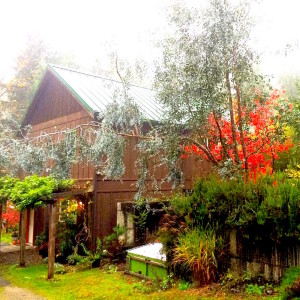I walked into my room the other day and was surprised to find some suitcases stacked in the corner. After a few moments’ reflection, I remembered that I’ll be moving in a week. It was a strange feeling, standing there and thinking about how easy it was to pack my life into three compact bags.
I’m no stranger to moving. When I was four, my family traveled from New Jersey to Washington State by train. We spent the next few years moving around the Puget sound, shuttling our possessions to Burien, then Federal Way, and then Olalla, before finally settling in a house in the Crescent Valley neighborhood of Gig Harbor. Something about these trips must have given me the travel bug. In the last three years of my life, for instance, I’ve lived in Portland, Dublin, Portland again, and Austin. And now, a mere six months later, I find myself preparing to leave once again.
Writing for Pickett Street has given me a different perspective on the concept of moving. Suddenly, after years of living out of a backpack (occasionally two backpacks, when I find myself acquiring more possessions than I ought to), I’m contemplating mortgages, property values, the pros and cons of one neighborhood over another. To put it another way, I’m thinking about the concept of building a life somewhere, of tethering oneself to a specific geographic location rather than wandering in search of the next frontier. In fact, it seems that I am not really talking about “moving” at all; I’m talking about home.
But what is home, exactly? Or, rather, what should it be? In this most mobile of eras, many of us have yet to experience the feeling of having a permanent residence we’ll keep for decades, and yet most of us have some notion of what “home” means. It’s a house, sure, but it’s more than that: a feeling of rootedness, perhaps, a sense of setting foundations and burrowing into the soil. Establishing a home is far weightier, far more important, than merely going to open houses, securing a mortgage, signing papers, and hefting heavy boxes onto a moving truck; home is more than the physical space you buy when you sign a lease. Instead, home is a concept, the personality that fills the rooms and corridors of your house after you’ve spent countless years accumulating experiences. It’s this feeling, this invaluable sediment of memory, that you simply cannot experience when you live your life on the road.
I’d like to describe my home for you: it’s a very simple place, tucked up in the pine forests of Crescent Valley. There’s no driveway, or at least no driveway in the modern sense of the word, just a dirt track slicing suddenly through the woods. My home’s exterior is sturdy timber, real wood, no plastic siding in sight. There’s a garden wrapping around it, a wild assortment of herbs, flowers, bamboo, Japanese maples, vegetables, and lavender. Curiously enough, it’s the lavender I remember most vividly, and I expect it’s the lavender I’ll recall many years from now when I’m old and senile. I remember how the rows stretched along the side of our lawn, how they bloomed during summer and attracted an endless, humming symphony of bumblebees. I remember cutting firewood out in the yard for hours, and then pausing to sit on the chopping block and watch the lavender ripple beneath the first drops of October rain.
This was my home. It is strange I should have to carry its memory across many years and continents before understanding its value.

